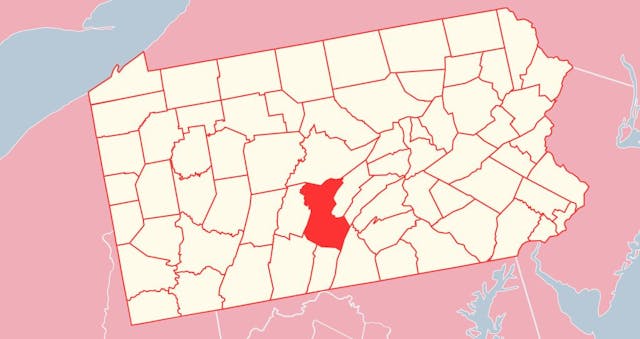Rehabs in Huntingdon
Huntingdon, located in Pennsylvania, occupies a 2,302 km² area. In 2021 the population was 44,000 which is 1000 less than in 2010. Among the main reasons for the decreasing population are drug and alcohol addiction.
According to SAMHSA’s statistics, 9,1% of residents misuse narcotics in the county. By the way, the rate is higher than the national average of 8,9%. Toxin overdose death cases also increase yearly. And the most misused substances are opioids.
The county has enough resources for healthcare to provide quality recovery services. Rehabs in Huntingdon County present recent solutions and customized approaches to substance abuse treatment. Surely, those unique healing programs aim to guarantee a positive result of the cure.
Drug and Alcohol Evaluation in Huntingdon Rehabs, PA
Many patients are afraid of assessments thinking that it is a stressful process. There is no sense to worry as the only thing that doctors require is honesty. Thus, the person struggling with addiction should give detailed and right answers to the counselor’s questions related to:
Illness sources
Substance kind
Length and intensity of toxin abuse
Co-occurring disorders
Symptoms
Changes in attitude (as usual physicians consult with family members regarding this point)
Based on this information the therapist determines the stage of addiction and understands how to react to the problem. In short, it helps therapists to decide:
The required duration of care
The necessity of medicine and dose
Suitable therapies and their frequency
So, without proper evaluation, no clinic starts treatment of a patient. It is the same as healing a person without being aware of what the disease is.
Cen Clear mental health center offers counseling and assessment services for people of all ages. The hospital also has cure programs for adults, teens, and children.
Detox
No less essential next procedure is detoxification. In this phase, the specialists prepare the patient’s body for the new sober life by ridding it of chemicals. Then, after revealing the core of the issue they start to need to fight against signs.
If detox supports the organism to overcome setbacks, aftercare keeps the habit of refusal from any kind of substance.
Inpatient and Outpatient Treatment Programs
Settlement in a clinic and partial hospitalization are considered the main treatment. Regardless of the care format, be it inpatient or outpatient, therapies are general. However, the number of visits and duration differs from one plan to another.
In the case of inpatient or residential care, the patients must stay in the facility for 1-3 months. Meetings with family or friends are not always possible. It depends on the individual situation.
Outpatient treatment requires 1-2 appointments a week. The cure lasts 3-9 weeks. Meanwhile, an intensive outpatient program (IOP) takes 6-12 hours weekly.
Penn Highlands Healthcare clinic offers holistic rehab services according to modern standards. All the specialists are professional and certified.
Forcing Teens Into Rehab
Sometimes compelling the child to enter a hospital remains the last option for parents. Surely, this is not the best solution, but it is just what they can do.
First, the law does not prohibit forcing the teen into rehab if he or she refuses to receive proper care. This refers to minors who are under 18 years old. At this age, parents make decisions instead of children, and it is fully legal.
Secondly, a delay may lead to worse consequences. Of course, teens hardly realize this. So, the parents or legal guardians have to be careful of them. Reasons for refusal and aggression are countless. But parents are to act correctly and on time not being afraid of the law. Otherwise, regaining the wellness of the minor will be harder or impossible.

